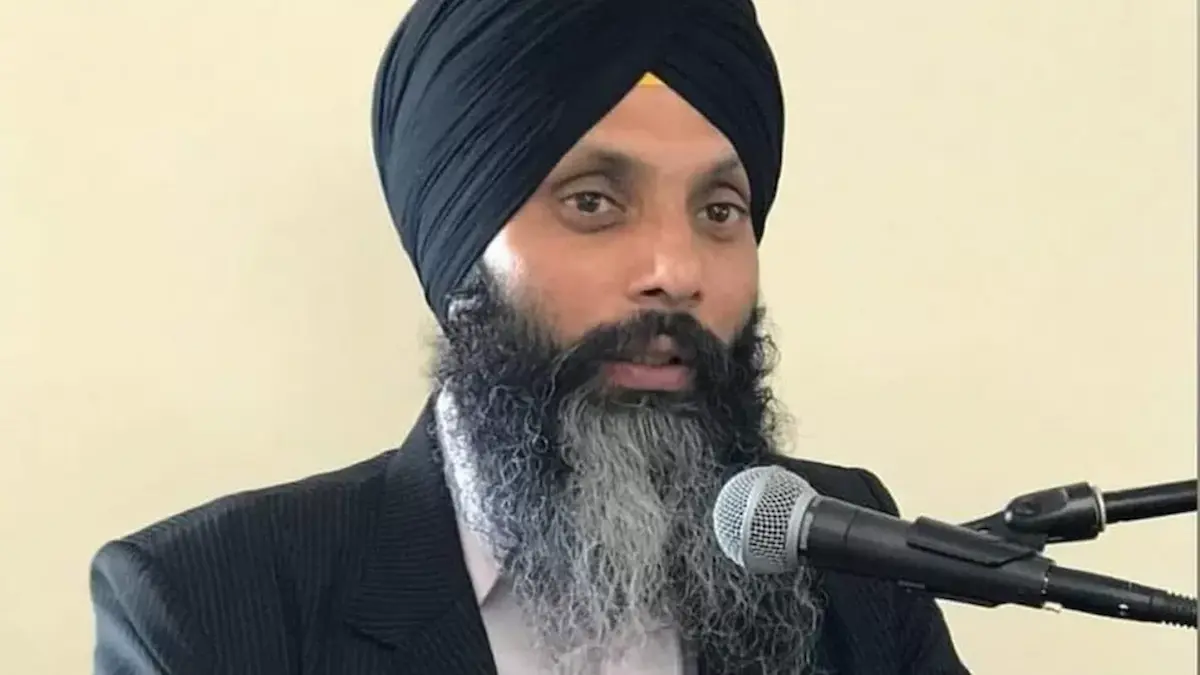Canada has accused Indian Government of involvement in the brutal murder of Hardeep Singh Nijjar, a Canadian Sikh leader, an allegation strongly denied by Delhi, reported BBC on Tuesday.
On Monday, while addressing the Canadian Parliament, PM Justin Trudeau said Canada was looking at “credible allegations potentially linking” the Indian state to Hardeep Singh Nijjar’s murder.
Mr Nijjar was was shot dead outside a Sikh temple on 18 June in Surrey, a city about 30km (18 miles) east of Vancouver, Canada. Canada has also expelled Indian diplomat Pavan Kumar Rai over the case.
“Any involvement of a foreign government in the killing of a Canadian citizen on Canadian soil is an unacceptable violation of our sovereignty,” Trudeau told lawmakers.
After Mr Trudeau’s comments, several large posters and tributes to Mr Nijjar were visible at the Guru Nanak Sikh Gurdwara in Surrey.
Moninder Singh, a spokesman for the British Columbia Sikhs Gurdwaras Council, told the BBC that the community appreciated “that at least the prime minister stood up and acknowledged that there is a foreign hand behind this murder”.
Other Sikh groups in Canada, including the World Sikh Organisation, welcomed the prime minister’s statement, saying Mr Trudeau confirmed what was already widely believed in the community.
Canada also recently suspended negotiations for a free trade agreement with India. It gave few details on why, but India cited “certain political developments”.
Who was Hardeep Singh Nijjar?
Hardeep Singh Nijjar was a prominent Sikh separatist leader in the western-most province of British Columbia. He publicly campaigned for Khalistan – the creation of an independent Sikh homeland in the Punjab region of India.
According to New York Times, Mr. Nijjar was born in the district of Jalandhar in the North Indian state of Punjab.
In Canada, he married, had two sons, worked as a plumber and became the president of the Guru Nanak Sikh Gurdwara, a temple in Surrey, in 2020.
He had moved to Canada in the mid-1990s, according to Indian news reports, after a period in which the Indian government was cracking down on the Sikh movement.
Decades later, the Indian government declared him a terrorist, accusing him of plotting a violent attack in India linked to his advocacy. And in June, two masked assailants brutally killed him in front of a Sikh temple in Surrey, British Columbia, a city on the border with Washington.
However, a Canadian journalist to whom Mr. Nijjar gave his last interview, Gurpreet Singh, painted a different picture, speaking to the independent Indian news outlet The Wire about some of Mr. Nijjar’s community activities as a religious leader.
Mr. Nijjar held special prayers for “Muslims killed in the Christchurch bombings in 2019 in New Zealand,” Mr. Singh said, and for Indigenous children after the discovery of unmarked graves of students at Canadian residential schools. Mr. Nijjar, he said, also argued for the release of a detained Indian human rights defender who used a wheelchair.
India has in the past described Mr Nijjar as a terrorist who led a militant separatist group – accusations his supporters say are unfounded. They say he had received threats in the past because of his activism.
Mr Nijjar is the third prominent Sikh figure to have died unexpectedly in recent months.
In the UK, Avtar Singh Khanda, who was said to be the head of the Khalistan Liberation Force, died in Birmingham in June.
Paramjit Singh Panjwar, who was designated a terrorist by India, was shot dead in May in Lahore, the capital of Pakistan’s Punjab province.
Who are Sikhs?
Sikhs are a religious minority that make up about 2% of India’s population. Some groups have long called for Khalistan, a separate homeland.
In the 1970s Sikhs launched a separatist insurgency in India which saw thousands killed before it was quelled the following decade.
Since then, the movement has been mostly limited to countries with large Sikh populations such as Canada and the UK.
There are an estimated 1.4 to 1.8 million Canadians of Indian origin and the country has the largest population of Sikhs outside Punjab.
Indian Government’s reactions
On Tuesday, India’s ministry of external affairs said that it “completely rejected” Mr Trudeau’s claims which it described as “absurd” and politically motivated.
“We are a democratic polity with a strong commitment to rule of law,” the ministry said in a statement.
It accused Canada of providing shelter to “Khalistani terrorists and extremists” who threaten India’s security.
“We urge the government of Canada to take prompt and effective legal action against all anti-India elements operating from their soil,” the ministry said.
The backdrop to the tension between Delhi and Ottawa is the increasing pressure the Indian administration has put on governments of three countries with sizeable Sikh populations: Canada, Australia and the UK.
During the recently concluded G20 summit in India, PM Modi accused Canada of not doing enough to quell “anti-India activities of extremist elements”, referring to the Sikh separatists.
India has openly said that a failure to tackle what it calls “Sikh extremism” would be an obstacle to good relations.
Global Reactions to Canada’s Allegations
On Tuesday, the White House said it was “deeply concerned” about Mr Trudeau’s allegations.
“We remain in regular contact with our Canadian partners. It is critical that Canada’s investigation proceed and the perpetrators be brought to justice,” White House National Security Council spokesperson Adrienne Watson said.
On Tuesday, India’s ministry of external affairs said that it “completely rejected” Mr Trudeau’s claims which it described as “absurd” and politically motivated.
“We are a democratic polity with a strong commitment to rule of law,” the ministry said in a statement.
